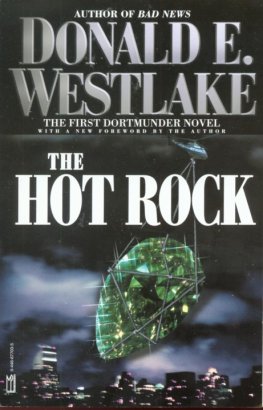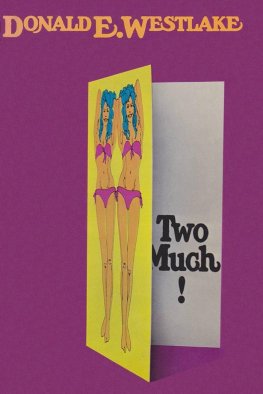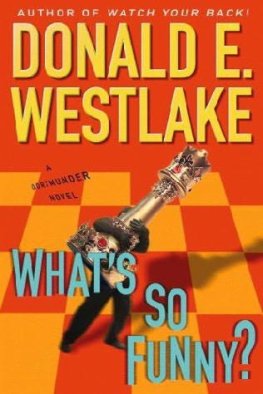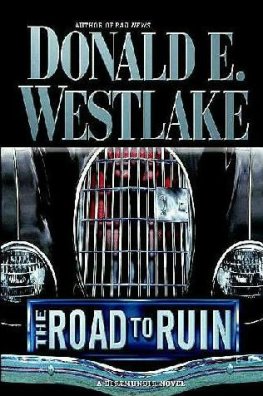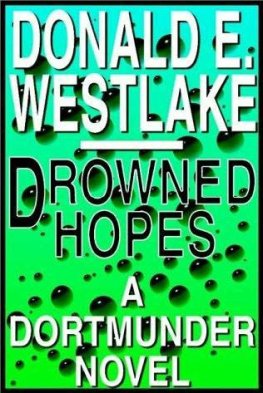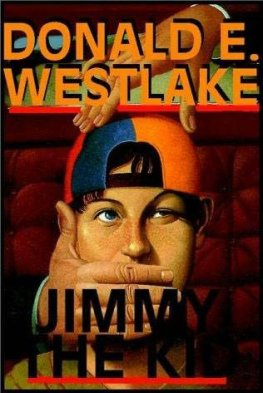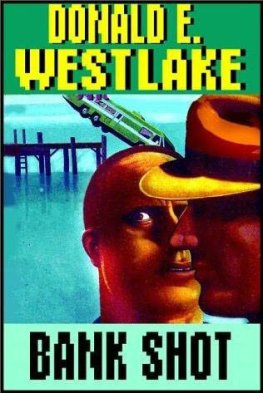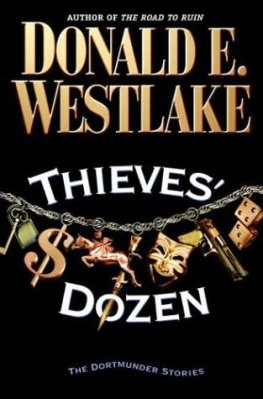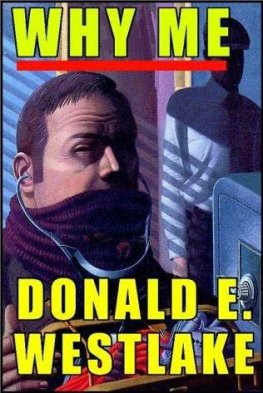Donald E. Westlake
The Hot Rock
This is for Milt Amgott, who has helped to keep me from a life of crime by making it superfluous.
The criminal is the type of the strong man in unfavorable surroundings, the strong man made sick.
F. W. Nietzsche
PHASE ONE
Dortmunder blew his nose. "Warden," he said, "you don't know how much I appreciate the personal attention you been paying me." There wasn't anything for him to do with the Kleenex, so he just held it balled up in his fist.
Warden Outes gave him a brisk smile, got up from behind his desk, walked around to Dortmunder's side, patted him on the arm, and said, "It's the ones I can save that give me the most pleasure." He was a latter-day Civil Service type - college-trained, athletic, energetic, reformistic, idealistic, and chummy. Dortmunder hated him.
The warden said, "I'll walk you to the gate, Dortmunder."
"You don't have to do that, Warden," Dortmunder said. The Kleenex was cold and gooey against his palm.
"But it will give me pleasure," the warden said. "To see you walk out that gate, and know you'll never slip again, you'll never be inside these walls again, and to know I had some small part in your rehabilitation, you can't imagine how much pleasure that will give me."
Dortmunder was feeling no pleasure at all. He'd sold his cell for three hundred bucks - having a hot water faucet that worked and a tunnel to the dispensary made it a bargain at the price - and the money was supposed to be passed to him on his way out. He couldn't have taken it before then or it would have been found in the final shakedown. But how could it be delivered with the warden standing right next to him?
He said, playing a little desperation ball, "Warden, it's in this office that I've always seen you, in this office that I've listened to your-"
"Come along, Dortmunder," the warden said. "We can talk on our way to the gate."
So they went to the gate together. On the last lap, crossing the big yard, Dortmunder saw Creasey, the trusty with the three C's, start in his direction and then abruptly stop. Creasey made a small gesture that meant, There's nothing to be done.
Dortmunder made a small gesture that meant, God damn it to hell, I know there's nothing to be done.
At the gate, the warden stuck his hand out and said, "Good luck, Dortmunder. May I say I hope I never see you again." It was a joke, because he chuckled.
Dortmunder switched the Kleenex to his left hand. It was really full, it had seeped all over his palm. He took the warden's hand and said, "I hope I never see you again either, Warden." It wasn't a joke, but he chuckled anyway.
The warden's expression had suddenly become a bit glassy. "Yes," he said. "Yes."
Dortmunder turned away, and the warden looked down at his palm.
The big gate opened, Dortmunder stepped outside, the big gate closed. He was free, his debt to society was paid. He was also out three hundred fish, God damn it. He'd been counting on that dough. All he had was ten bucks and a train ticket.
Disgusted, he threw the Kleenex on the sidewalk.
Littering.
Kelp saw Dortmunder walk out into the sunlight and then just stand there a minute, looking around. Kelp knew what that feeling was, the first minute of freedom, free air, free sun. He waited, not wanting to spoil Dortmunder's pleasure, but when Dortmunder finally started to walk off along the sidewalk, Kelp started the engine and steered the long black car slowly down the street after him.
It was a pretty good car, a Cadillac with side curtains, Venetian blinds across the back window, air conditioning, a gizmo that would keep the car moving at any desired speed without having your foot on the gas, a gizmo that would switch down your high beams at night when another car was coming, all sorts of labor-saving devices. Kelp had picked it up last night down in New York. He'd preferred to drive up here today rather than take the train, so he'd gone shopping for a car last night, and he'd found this one on East 67th Street. It had MD plates and he always automatically checked those, because doctors tend to leave the keys in the car, and once again the medical profession had not disappointed him.
It didn't have MD plates now, of course. The state hadn't spent four years teaching him how to make license plates for nothing.
He glided along after Dortmunder now, the long black Caddy purring along, tires crunching the dirty pavement, and Kelp thought how surprised and pleased Dortmunder would be to see a friendly face the first thing on hitting the street. He was just about to hit the horn when Dortmunder suddenly spun around, looked at the silent black car with side curtains following him, got a panicky look on his face, and began to run like hell along the sidewalk, cowering against the gray prison wall.
There were four buttons on a control panel in the door, and they operated the four side windows of the Cadillac. The only trouble was, Kelp could never remember which button operated which window. He pushed a button and the right rear window slid down. "Dortmunder!" he shouted, hitting the accelerator, the Caddy leaping forward along the street. There was no one else in sight, only the black car and the running man. The prison wall loomed tall and gray, and across the street the small grimy houses were closed and silent, shades and drapes blinding their windows.
Kelp was veering all over the street, his attention distracted by his confusion over the window buttons. The left rear window rolled down, and he shouted Dortmunder's name again, but Dortmunder still couldn't hear him. His fingers found another button, pushed, and the right rear window rolled up again.
The Caddy jounced up over the curb, the tires slewed across the weedy space between curb and sidewalk, and then Kelp's car was angling straight for Dortmunder, who turned, flattened his back against the wall, spread his arms out wide to both sides, and screamed like a banshee.
At the last second, Kelp hit the brakes. They were power brakes, and he hit them hard, and the Caddy stopped dead, bouncing Kelp off the steering wheel.
Dortmunder reached one shaky hand out and leaned on the Caddy's quivering hood.
Kelp tried to get out of the car, but in his excitement he'd hit another button, the one that automatically locked all four doors. "Damn doctors!" Kelp cried, pushed every button in sight, and finally lunged from the car like a skin diver escaping from an octopus.
Dortmunder was still standing against the wall, leaning forward slightly, supporting himself with one hand on the car hood. He looked gray, and it wasn't all prison pallor.
Kelp walked over to him. "What are you running for, Dortmunder?" he said. "It's me, your old pal, Kelp." He stuck his hand out.
Dortmunder hit him in the eye.
"All you had to do was honk," Dortmunder said. He was grousing because his knuckle was stinging where he'd skinned it on Kelp's cheekbone. He put the knuckle in his mouth.
"I was going to," Kelp said, "but things got kind of confused. But they're okay now?"
They were on the express road to New York, the Caddy's speed set at sixty-five miles an hour. Kelp had to keep one hand on the wheel and occasionally glance out front to see they were still on the road, but other than that the car was driving itself.
Dortmunder was feeling aggrieved. Three hundred bucks down the drain, scared out of his wits, almost run down by a damn fool in a Cadillac, and skinned his knuckle, all on the same day. "What do you want, anyway?" he said. "They give me a train ticket, I didn't need no ride."
"You need work, I bet," Kelp said. "Unless you got something lined up."
"I don't have anything lined up," Dortmunder said. Now that he thought about it, that irritated him too.

